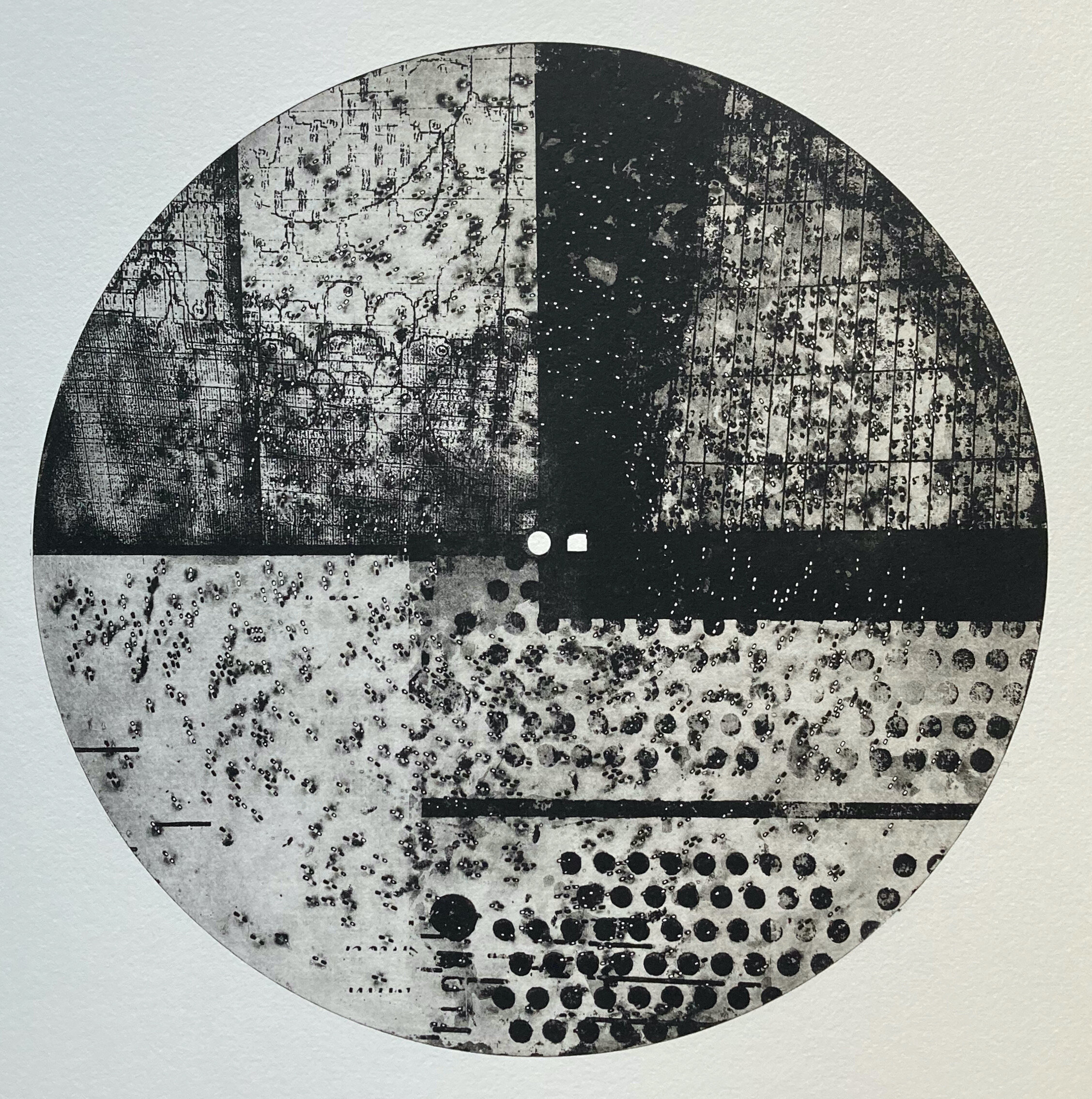
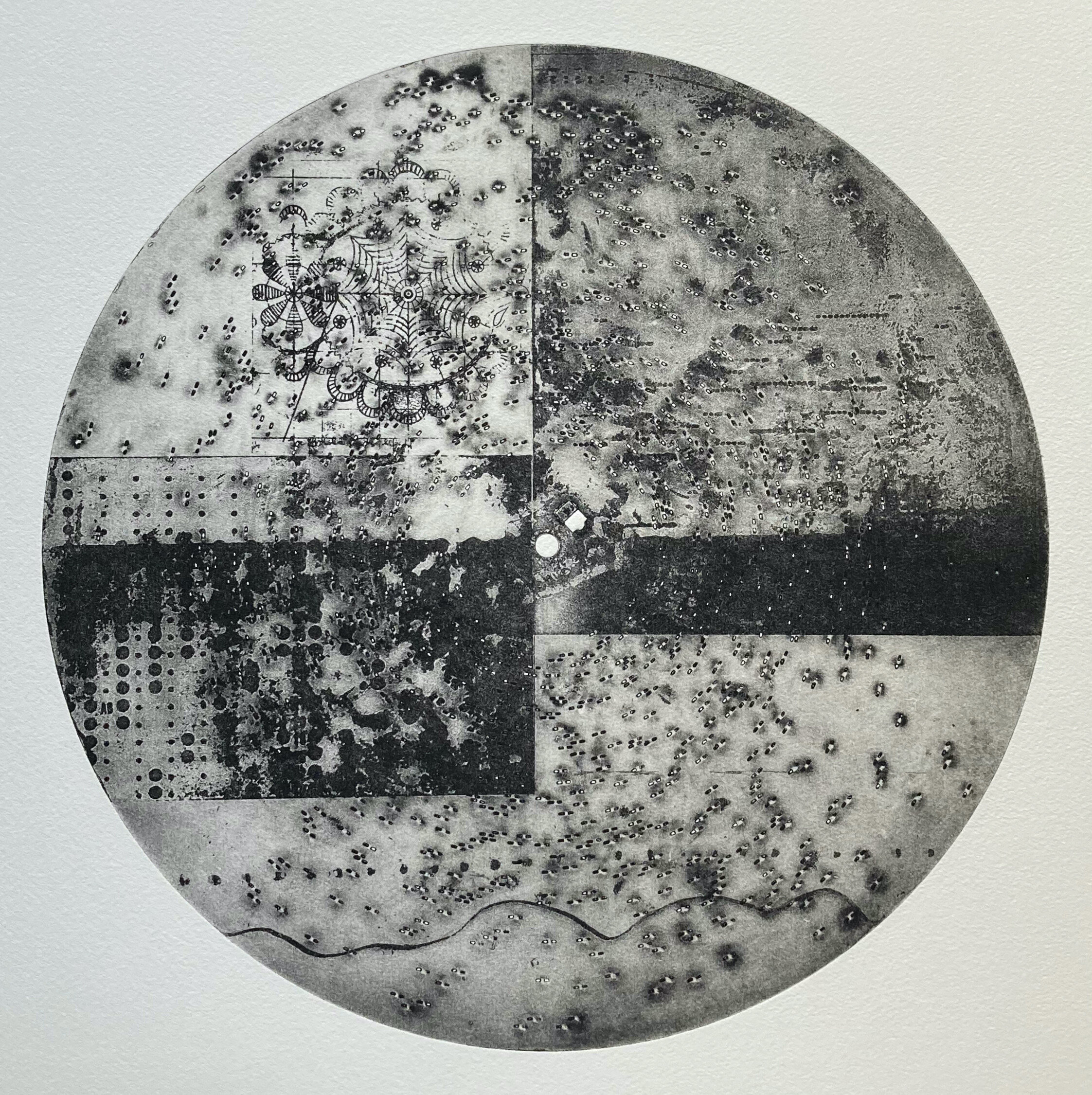
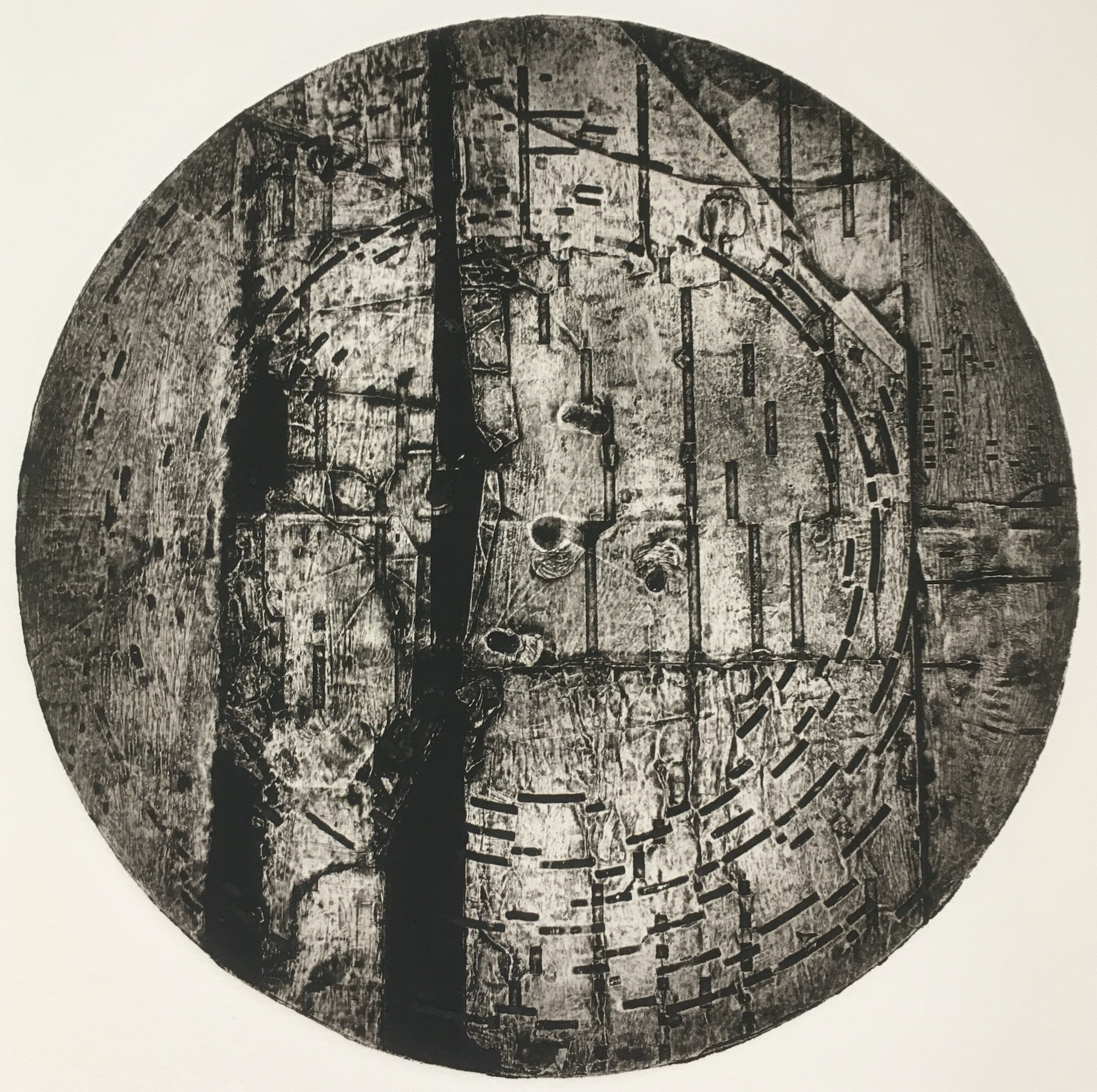
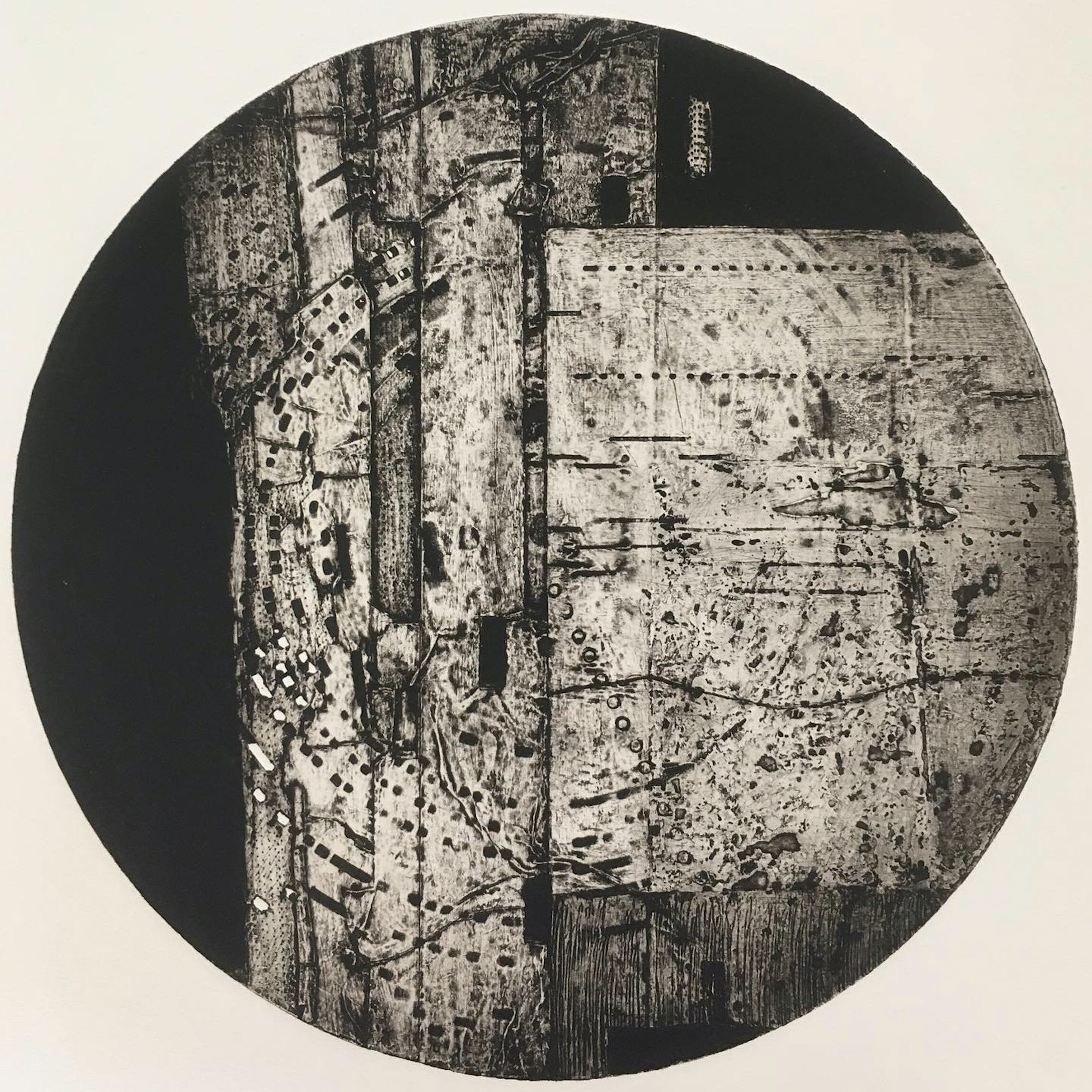
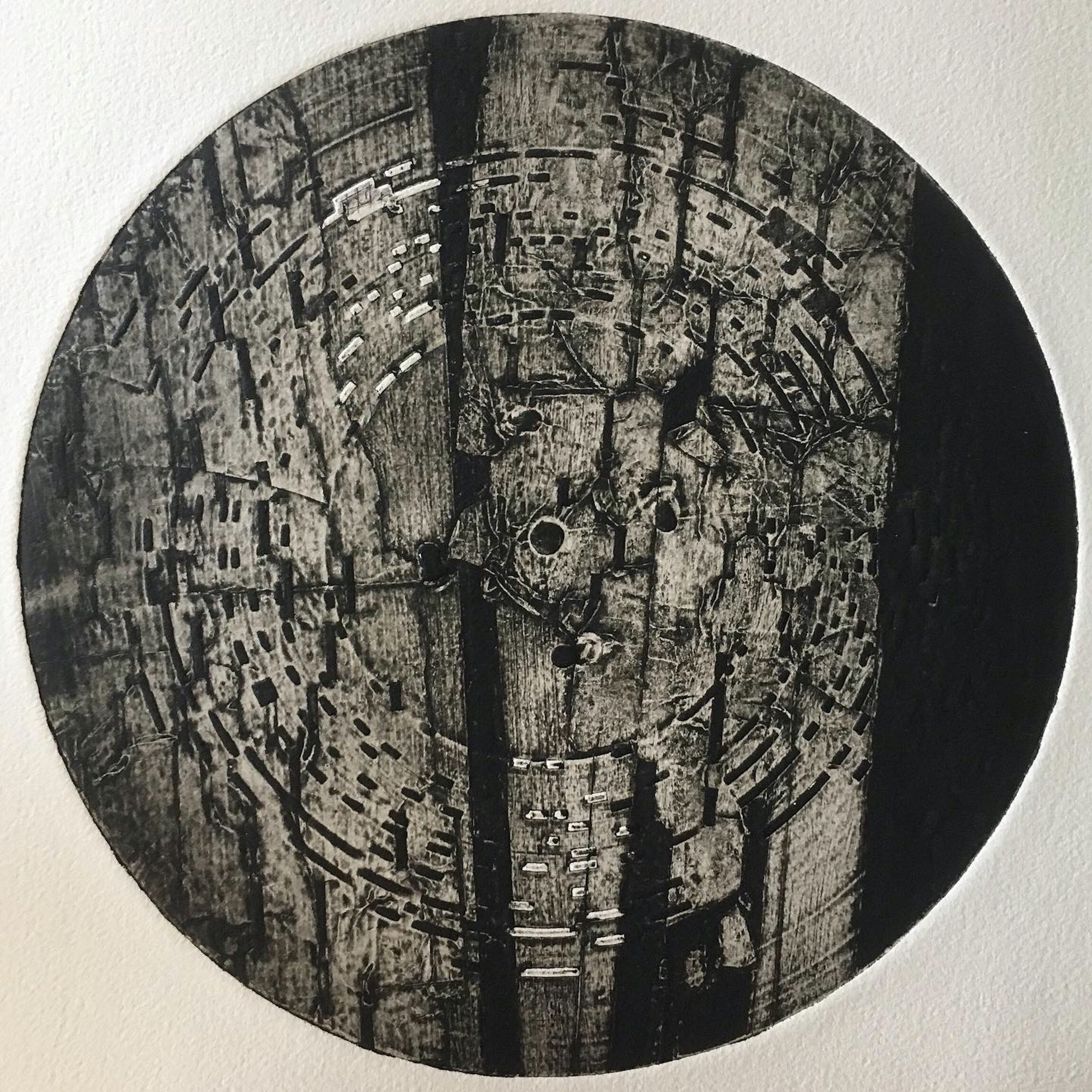
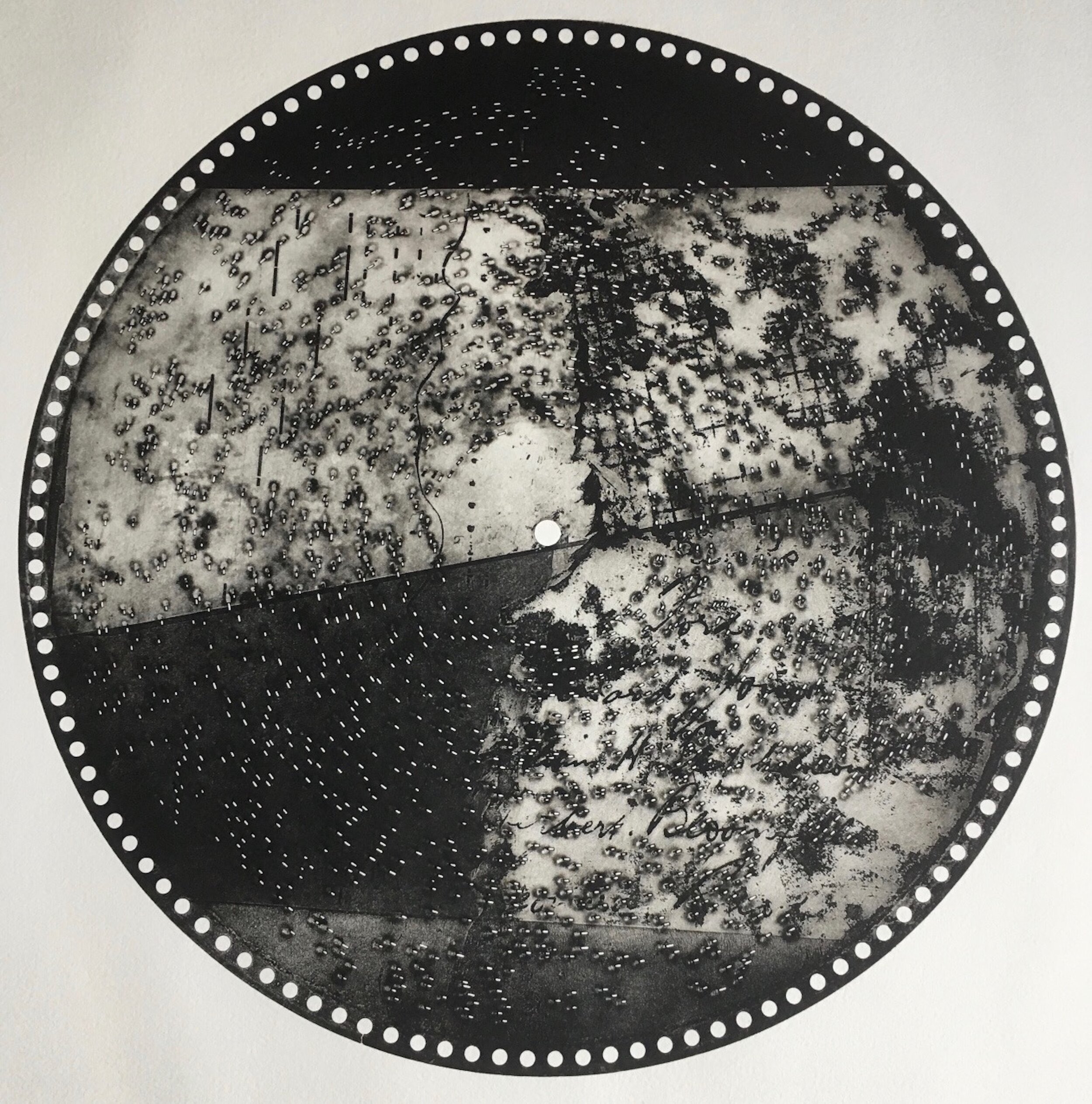
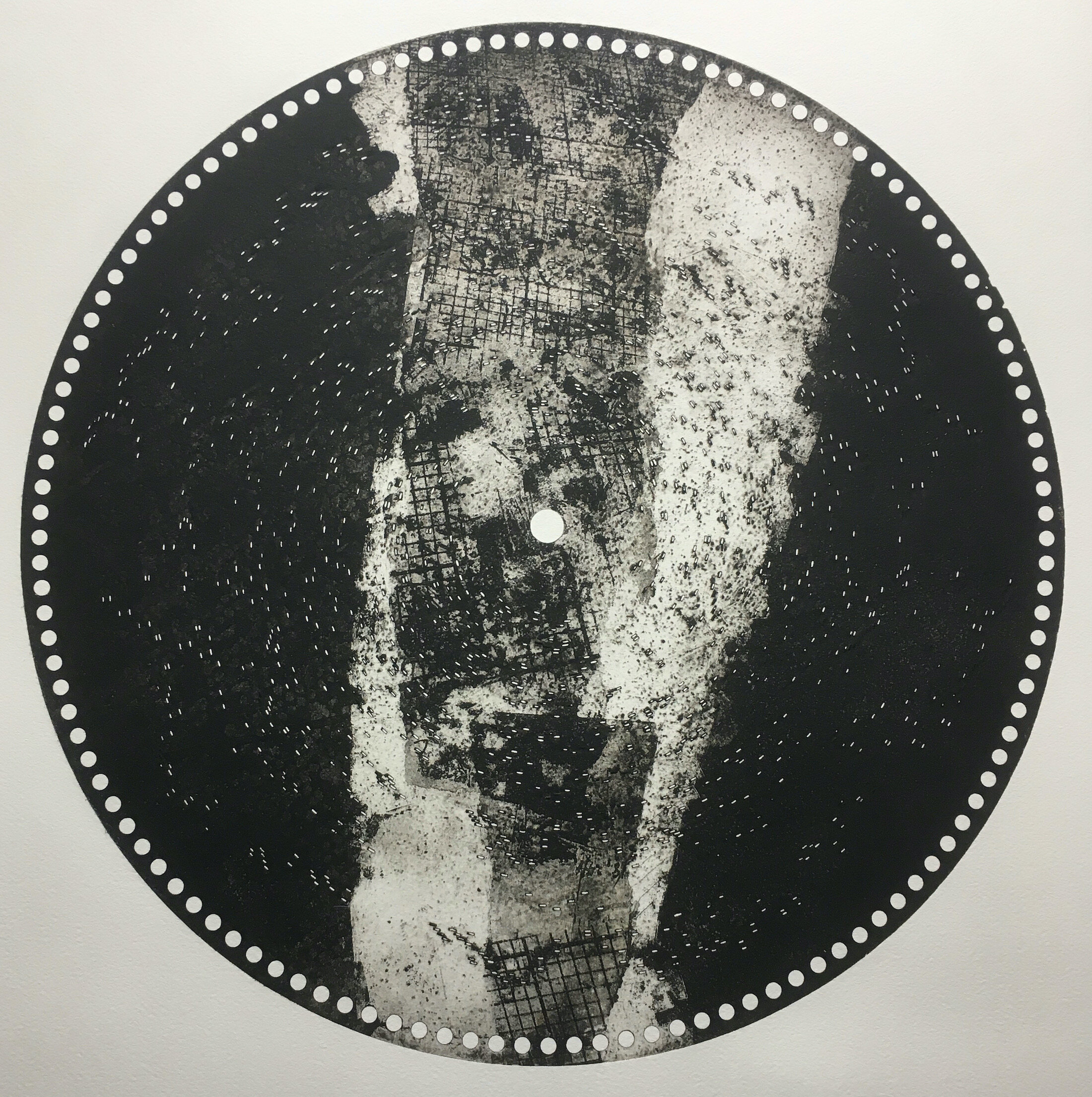
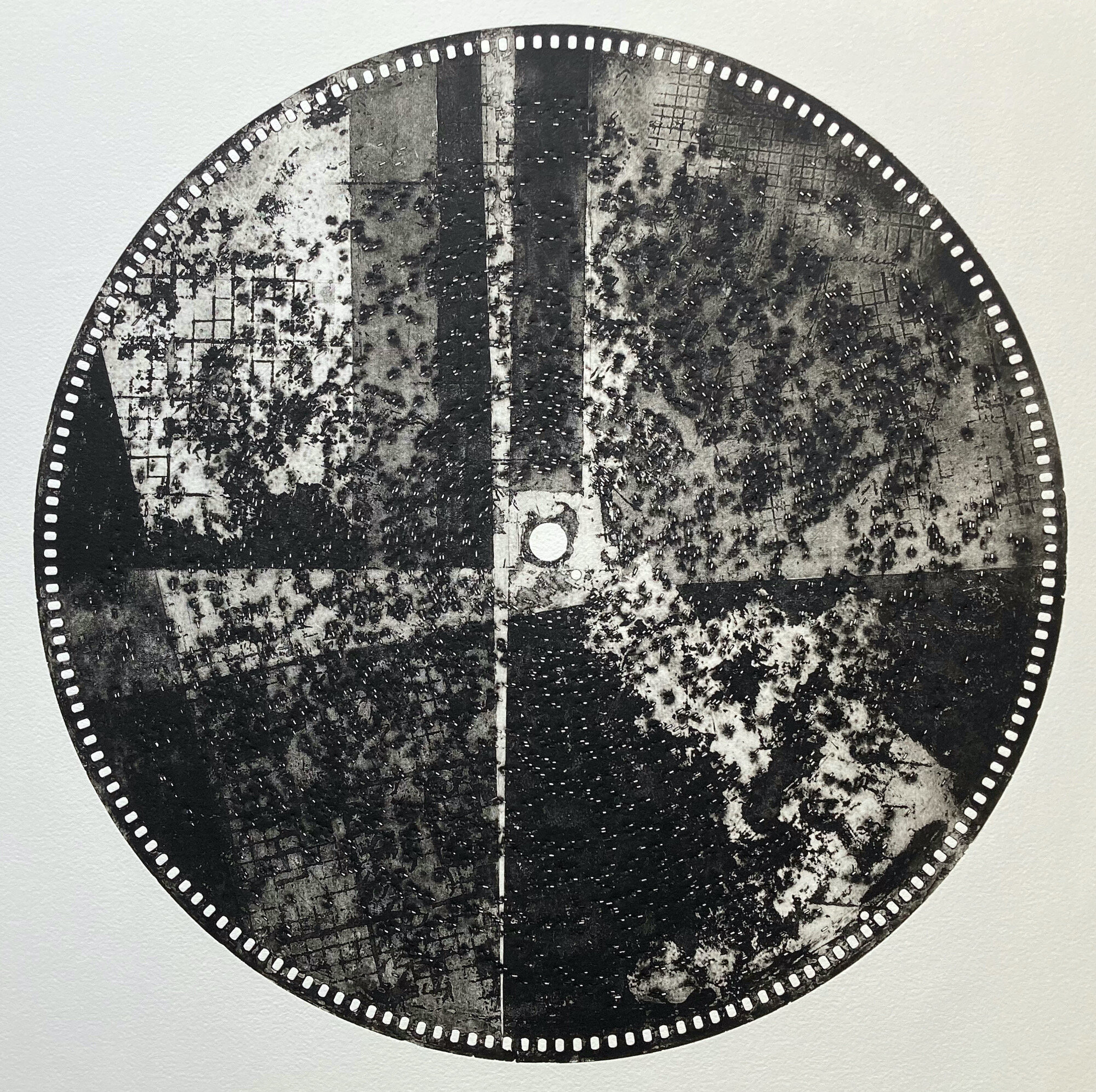
Her work speaks to a societal shift from manufacturing towards the service, knowledge and information sectors, and of the ‘culture lag’ that is part of this narrative. Non-material culture continues to evolve much slower than material culture. Ideas, beliefs, values and social norms change more slowly than technology.
Winner of the inaugural Scott Creative Arts Foundation Emerging Artist Award, Clare was also shortlisted for the London Contemporary Art Prize in 2019. In 2017 she was shortlisted for the Flourish Award for Excellence in Printmaking, and was a recipient of the Art& RAW Talent Award Scheme. In 2018 she received a bursary and solo exhibition with Wigan STEAM (Science, Technology, Engineering, Art and Maths)
Other exhibitions include the Woolwich Contemporary Print Fair 2018, Print International Wrexham 2019, the RBSA print prize exhibition 2018 and The Great Print Exhibition Rheged 2019.
Clare Phelan
Printmaker.
Following a twenty year career as an Art Psychotherapist in the NHS, Clare returned to education completing a Visual Arts MA (distinction) in 2014. She now works as a full time artist/printmaker from her studio in Holmfirth, West Yorkshire.
After graduation, Clare concentrated her studies on early coding technology artefacts and printmaking. Having already collected material associated with machine-made lace such as coded textile jacquards, she began to source and work directly with IBM punch cards, cardboard music box discs and pianola rolls.
These objects, made of paper and card, offer the opportunity to incorporate collagraph printmaking into her practice. The textural qualities of such artefacts are heightened through this process. Photo etching onto the metal discs provides a way to translate detailed surface information into printmaking. Faded and fragile, often rusted and warped, ripped and torn, these ‘host’ materials have presence and a history. They impact upon the senses, and are the ancestors of our digital world.
Clare is interested in the idea of a ‘cultural lag’ in our understanding of advancing technology. It’s easy to feel fear, frustration and a sense of being left behind, as our lives become increasingly mediated through machines. Cyber-culture theory offers a useful way to think about the relationship between bodies, minds and machines.
‘……. things get faster, smaller, more useful, more user-friendly, and this is a good thing, or so one particular type of storytelling says. Other stories less often told, reveal the trials, the resistances, the accommodations and negotiations involved in living with new technologies’ (David Bell, 2007).
*Prices shown maybe subject to change
+Work shown may not be in stock, please contact us to confirm availability
Visit Cupola Gallery for more details or contact:
174-178a
Middlewood Road, Hillsborough, Sheffield,
S6 1TD
Tel. (0114) 285 2665
Opening Times Mon - Sat 10-6
